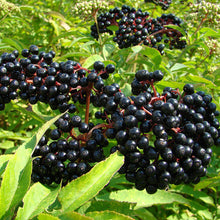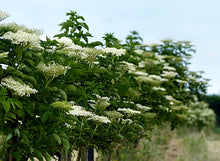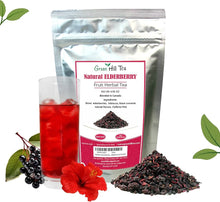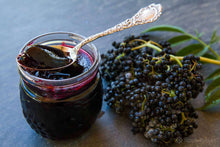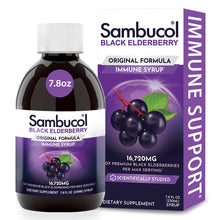
Tinctures, tea, cough syrup, jam and more- oh my! Elderberry is one of North America's most versatile native plants loved by not only for humans, but native wildlife too. NRICD is excited to offer this for our 2025 sale as a NEW seedling.
You asked us for more edible and medicinal value plant options during last year's sale, and we listened! Learn more about Elderberry below.
This is a preorder and the seedlings are expected to arrive at NRICD by the date of the seedling sale on April 26. If an unforeseen weather or shipping event prevents your order from being fulfilled, you will receive a full refund.
Latin: Sambucus canadensis
Zones: 4-9
Other common names: American elder, sweet elderberry, blackberry elder
Mature Height/spread: 5-12 ft high and 5-12′ spread in ideal conditions.
Soil / Climate: Prefers moist, fertile soils. Elderberry is found mostly throughout the eastern and midwestern United States.
Notes: The Elderberry has oblong to oval leaves that turn greenish-yellow in the fall. White, fragarant flowers which can be washed, shaken dry, stripped from stems and beaten into batters for pancakes, waffles and muffins. Berries are small, purple-black color, and have a pleasant taste. The berries ripen in late July through September.
An easy way to improve the flavor of mature elderberries is to dry them in the sun or oven. The juice is often used for making wines and jellies. Mix elderberries with apples to make an outstanding jelly. Two year old shoots will produce fruit, which persists into early fall. Each berry contains from 3-5 seeds. These seeds are dispersed by birds and mammals ingesting them. The larger stems were once fashioned into arrows. Periodic pruning is recommended. Planting multiple shrubs for best results for fruiting.
Photos courtesy of Green Hill Tea, Sambucol, SimpleRecipes.com, Greenwood Nursery, and Native Foods Nursery.





